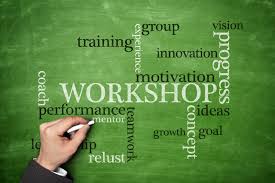It’s critical for leaders (and those aspiring to be leaders) to learn the skills required to conduct high quality presentations and facilitate well-run meetings. It not only reflects on you professionally, it also builds a positive reputation for your company, department and team. Developing the right skills helps you attract clients and team members that want to work with you, receive promotions and pay increases, and build new career opportunities. One of the most important indicators of professional success (regardless of your occupation) is your ability to speak, listen and share the spotlight in a way that elicits the best from others.
Practice the right things, the right way.
Developing excellent skills takes consistent practice of the right things, the right way. For example, continuing to practice the piano playing the wrong notes, will not improve your ability to play the right notes when it counts – at a recital or in a competition. While learning presentation and facilitation styles may not seem important when you are young or in your current profession, consider taking the time now so you don’t miss golden opportunities to accelerate your leadership growth.
4 Key Behaviors that Make a Difference
Practice is required for all endeavors, and developing excellent presentation and facilitation skills is required in many jobs. When preparing for a presentation, write down an outline of the key points and practice in front of a mirror. Ask for feedback from others, before and after the program. Winging it usually means you don’t understand the importance of engaging an audience — remember you may not get a second chance to cause a favorable impression, win the contract or resolve a company issue.
Discipline is created by following a structure that works and by scheduling repetitive practice, on a consistent basis. Attending Toastmasters is one example. It provides the opportunity to learn and practice the right skills – it also teaches proper etiquette for managing the stage, room, podium, handouts, seating, mic, etc. Developing a style that works for you and engages everyone in your audience is the ultimate goal.
Coach-ability is very important. Thinking you know-it-all (so you don’t have to practice or listen to others’ suggestions) will quickly impede your progress. Welcome the feedback from others and consider it valuable. Hire a coach, attend a workshop, and ask your boss or co-worker to critique you –you’ll be surprised by the progress you make by being coachable.
Learn from your mistakes. Shake it off when you make a mistake, apologize if needed and move on. Most people won’t even know you made a mistake – however, there will be some mistakes that are not as easily overlooked (e.g., using a four-letter word, gossiping, etc.). After your presentation or meeting, take time to identify two areas of improvement with your coach. Don’t forget to solicit feedback from the organizer of the event, by asking “What worked?” and “What didn’t work or could have been better?” When conducting training programs, written evaluations can be helpful to ensure the main points and concerns were addressed. Remember, one bad review doesn’t mean you did a bad job! However, pay attention when you have had several similar comments.
Again, as a leader, it’s up to you to elicit the best from your audiences — employees, industry professionals and others. It requires disciplined practice, coach-ability and learning from your mistakes in order to conduct well-received presentations and facilitate well-run meetings.
©Jeannette Seibly, 2015
Jeannette Seibly is a business advisor who creates million-dollar results for business owners and executives of $5MM to $30MM enterprises. Along the way, she has guided the creation of three millionaires. http://SeibCo.com
Learn how-to sell yourself, your products and services, It’s Time to Brag! (http://Time2Brag.com)

